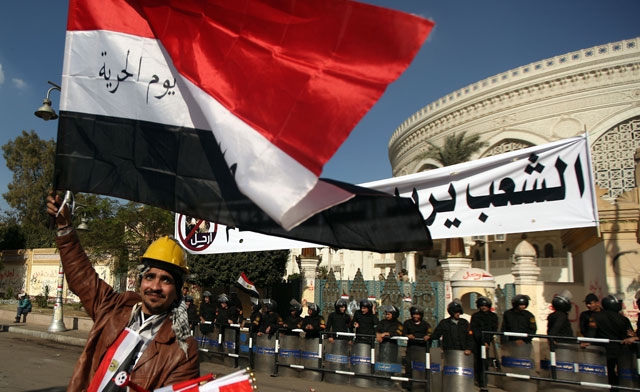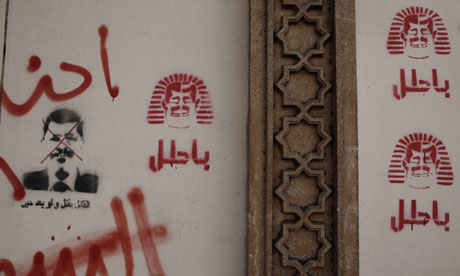Egypt President Mohammad Mursi has scrapped a November 22 decree that had generated widespread unrest by granting himself expanded powers
Egypt President Mohammad Mursi has scrapped a November 22 decree that had generated widespread unrest by granting himself expanded powers. But he insisted a referendum on a new constitution would go  ahead as planned this week.
ahead as planned this week.
The announcement, which would placate Mursi's opponents, came after Egypt's military warned that failure to resolve a crisis over the drafting of the constitution would result in "disastrous consequences" that could drag the country into a "dark tunnel".
Prime Minister Hisham Qandil said Mursi had agreed to "modify" the controversial decree, and that he wanted to discuss postponing a referendum due next week on a controversial new constitution.
Egypt’s opposition called for street protests to continue on Sunday against Mursi until he drops a referendum on a new draft constitution. They accused Mursi of continuing to ignore the will of the people. “We call on Egyptian youth to hold peaceful demonstrations and sit-ins in all of Egypt’s squares until our demands are met,” the National Salvation Front said in a statement.
Speaking to the BBC World Service, Ahmed Said, leader of Free Egyptians Party and a member of the front, said: "This constitution does not represent Egyptians. We need to take time. He wants the constitution, because they want the parliament, they want the Shura council. It all has to do with the Muslim Brotherhood. They want to take over everything."
The BBC Middle East correspondent Wyre Davies suggests Mursi's decision to revoke his power grab is a clever politics, but a meaningless gesture because his controversial decree had already served its purpose.
